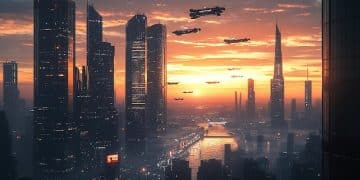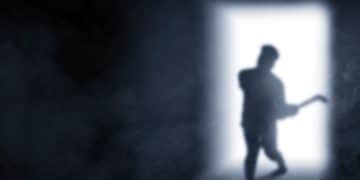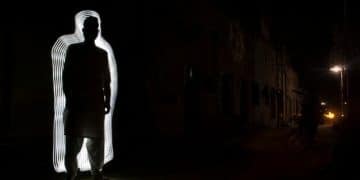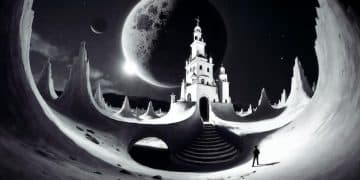Speculative Fiction’s Expansive Reach: Exploring Subgenres and Possibilities
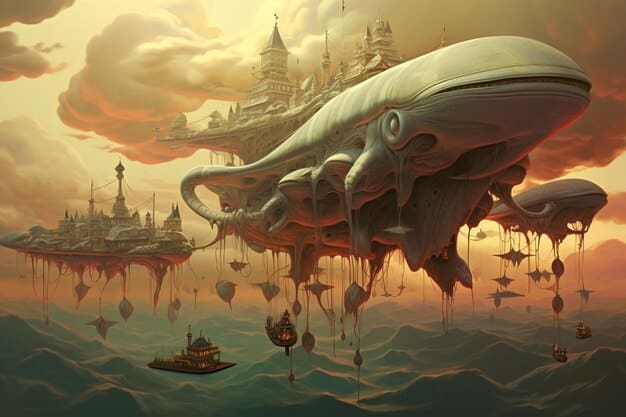
Speculative fiction encompasses a diverse array of literary genres, including science fiction, fantasy, horror, and their numerous subcategories, collectively exploring imaginative possibilities beyond current reality through world-building and hypothetical scenarios.
Delving into the vast landscape of speculative fiction offers a captivating journey. This genre isn’t just about escaping reality; it’s about dissecting it, exploring its boundaries, and imagining what lies beyond. Understanding speculative fiction’s expansive reach: exploring the genre’s subcategories and imaginative possibilities reveals a rich tapestry of human creativity and a profound engagement with hypothetical futures, alternate pasts, and impossible presents.
Defining the Realm: What is Speculative Fiction?
Speculative fiction, at its core, is a broad umbrella term that encompasses narratives set in worlds that differ from our own, altering reality through magic, technology, or societal changes. It’s a space where authors can ask “what if” questions and build entire universes from those initial inquiries, often commenting on our present world in the process.
This genre often transcends simple categorization, blurring lines between what might traditionally be seen as distinct literary forms. It challenges readers to consider new perspectives, grapple with complex ethical dilemmas, and experience emotions through the lens of the extraordinary. The true power of speculative fiction lies in its ability to simultaneously entertain and provoke thought, pushing the boundaries of imagination while often holding a mirror to humanity’s deepest fears and highest aspirations. It thrives on exploration, not just of distant galaxies or mythical lands, but of the human condition itself, seen through a distorted, magnified, or entirely new lens.
A Spectrum of Imagination
Speculative fiction isn’t a single, monolithic entity; rather, it’s a vibrant spectrum. Its strength lies in its ability to adapt and encompass new ideas, making it one of the most dynamic and enduring forms of storytelling.
- It explores the unknown, whether through scientific advancement or mystical forces.
- It pushes societal boundaries, imagining cultures and systems vastly different from our own.
- It delves into philosophical questions, often without providing easy answers.
- It allows for bold experimentation with narrative structure and world-building.
Ultimately, speculative fiction is a testament to the boundless nature of human creativity, a field where the only true limit is the imagination itself. It invites writers and readers alike to dream bigger, question deeper, and journey to places that exist only in the mind – until, perhaps, they don’t.
Science Fiction: The Frontier of the ‘What If’
Science fiction stands as a cornerstone of speculative fiction, distinguished by its grounding in scientific principles, whether real, extrapolated, or imagined. It explores the impact of science and technology on human society, often grappling with complex ethical, philosophical, and social questions. From dystopian futures born of unchecked technological progress to utopian societies reshaped by advanced scientific understanding, science fiction serves as a powerful lens through which to examine humanity’s potential and perils. It’s a genre that thrives on challenging assumptions about what’s possible, inspiring both wonder and caution in equal measure.
Exploring the Subgenres of Sci-Fi
The vastness of science fiction is best appreciated by delving into its many subgenres, each offering distinct flavors of technological advancement and societal change. These categories, while sometimes overlapping, provide unique narrative playgrounds.
- Cyberpunk: Often depicted in dystopian futures, characterized by advanced technology (cybernetics, artificial intelligence) amidst societal decay, corporate control, and underground resistance. Think neon-lit streets, rain-slicked alleys, and augmented humans struggling for autonomy.
- Space Opera: Grand-scale adventures set in interstellar space, featuring epic conflicts, brave heroes, and exploration of alien civilizations. Focus is often on drama, expansive settings, and moral dilemmas rather than strict scientific accuracy.
- Dystopian Science Fiction: Explores oppressive societal control or catastrophic environmental futures, serving as cautionary tales about political extremism, technological overreach, or ecological collapse. These narratives often highlight themes of freedom, rebellion, and human spirit against tyranny.
- Steampunk: An aesthetic subgenre that reimagines Victorian-era technology with an emphasis on steam power, intricate clockwork mechanisms, and a blend of past and future. It’s often whimsical, inventive, and visually distinctive.
- Biopunk: Focuses on biotechnology and genetic engineering, exploring the ethical implications of altering life itself. Narratives often involve genetic manipulation, cloning, and the blurring lines between organic and synthetic.
Science fiction enables us to envision profound transformations, helping us consider the long-term ramifications of our present decisions. It’s a field ripe with potential, continuously evolving as our understanding of science and technology progresses, ensuring its relevance in an ever-changing world. The genre doesn’t just predict the future; it often shapes how we think about it.
Fantasy: Where Magic and Myth Reign Supreme
Fantasy, another major pillar within speculative fiction, diverts from reality by introducing magical systems, mythical creatures, and often, secondary worlds entirely distinct from our own. Unlike science fiction, its core premise is typically rooted in the supernatural, folklore, and ancient legends, rather than scientific possibility. Fantasy allows for boundless creativity in terms of world-building, character design, and the exploration of archetypal struggles between good and evil, fate and free will. It transports readers to realms where the impossible is commonplace, where dragons fly, spells are cast, and destiny often hangs by a thread.
A Journey Through Fantastic Worlds
The diversity within fantasy is as rich and varied as the mythologies and folklore it draws upon. Different subgenres cater to a wide range of tastes, from epic sagas to intimate tales of personal magic.
- High Fantasy (Epic Fantasy): Characterized by extensive world-building, intricate magical systems, and often a grand, overarching conflict involving a defined hero’s journey. Notable for its large casts, detailed histories, and often multi-volume narratives.
- Urban Fantasy: Integrates magical elements, mythical beings, or super-powered individuals directly into contemporary, real-world urban settings. It blends the mundane with the magical, often featuring detectives, ancient orders, or hidden societies.
- Dark Fantasy: Combines elements of horror with fantasy, often featuring morally ambiguous protagonists, bleak settings, graphic violence, and a sense of pervasive dread. It explores the darker aspects of magic and human nature.
- Mythic Fantasy: Directly draws upon and reinterprets myths, legends, and folklore from various cultures, often giving familiar tales a new twist or exploring their deeper psychological meanings.
- Low Fantasy: Set in the real world (or a world very similar to it), where magical elements are subtle, rare, or hidden, impacting the narrative minimally compared to high fantasy. It often focuses on personal struggles with magic as a background element.
- Grimdark Fantasy: A subgenre of dark fantasy known for its cynical, pessimistic, or morally ambiguous tone, often depicting harsh realities, brutal characters, and a general lack of clear heroism.
Fantasy serves as a powerful medium for exploring universal themes such as power, corruption, sacrifice, and the nature of humanity, all through the enchanting veil of magic and wonder. It invites us to believe in the impossible and find truth within the fantastical. The allure of fantasy lies in its ability to build worlds that feel both entirely alien and deeply resonant, offering escapism while simultaneously reflecting our own world in profound ways.
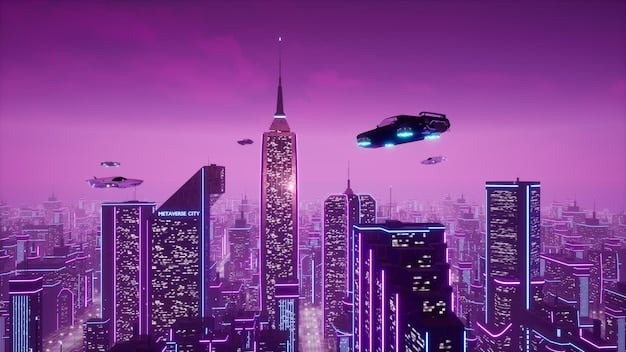
Horror: Confronting Our Deepest Fears
Horror, while often classified separately, is undeniably a potent form of speculative fiction that specializes in exploring fear, dread, and the grotesque. It pushes boundaries by delving into the psychological, supernatural, and even the physical aspects of terror. Unlike other genres that might touch upon fright, horror’s primary goal is to evoke sensations of shock, repulsion, and suspense, often by confronting readers with their deepest anxieties or the darker aspects of human nature. This genre thrives on the unknown, using it as a canvas to paint terrifying scenarios that resonate long after the story ends.
The Many Faces of Fear
Horror is far from a monolithic genre; its effectiveness often lies in its ability to tap into varied types of fear, leading to a rich ecosystem of subgenres. Each subcategory meticulously crafts its own unique brand of terror.
- Supernatural Horror: Relies on elements beyond scientific understanding, such as ghosts, demons, curses, or ancient evils, to instill fear. The terror often comes from an unseen force or an entity that defies natural laws.
- Psychological Horror: Focuses on the mental and emotional states of characters, slowly eroding their sanity and blurring the lines between reality and delusion. The fear often stems from within, from paranoia, guilt, or buried trauma.
- Gothic Horror: Combines elements of horror with romanticism, featuring dark, brooding settings (castles, decaying mansions), supernatural occurrences, and often themes of decay, isolation, and tragic romance.
- Body Horror: Explores the unsettling transformation or disintegration of the human body, often through disease, mutation, or grotesque physical alterations. It preys on the visceral discomfort with physical degradation.
- Cosmic Horror (Lovecraftian Horror): Focuses on the insignificance of humanity in the face of vast, indifferent, and incomprehensible cosmic entities or forces. The fear comes from the realization of utter powerlessness and the breakdown of sanity.
- Folk Horror: Draws on folklore, paganism, ancient rituals, and isolated rural settings to create a sense of dread tied to primal fears and the disturbing traditions of insular communities.
Horror challenges us to confront the uncomfortable, to gaze into the abyss, and to understand the many forms that fear can take. It’s not just about jump scares; it’s about the pervasive atmosphere, the creeping dread, and the profound questions it raises about what it means to be human in a world full of shadows. This genre provides a cathartic experience, allowing readers to explore the terrifying from a safe distance, often leaving them with a deeper understanding of their own vulnerability and resilience.
Alternative Histories and Slipstream: Twisting Reality
Beyond the more defined realms of science fiction, fantasy, and horror, speculative fiction also embraces genres that subtly, or dramatically, alter our known reality. Alternative history speculates on what might have happened had a pivotal historical event unfolded differently, while slipstream fiction blurs the lines between genre and mainstream literature, often incorporating fantastical or surreal elements into otherwise realistic narratives. These subgenres operate in the liminal spaces of imagination, challenging our perceptions of time, causality, and reality itself. They invite readers to consider not just different futures, but radically different pasts and presents.
Subtle Shifts and Profound Alterations
The beauty of alternative history and slipstream lies in their capacity for profound impact with often subtle changes, or in the seamless integration of the impossible into the mundane.
- Alternative History: This subgenre posits a “what if” scenario based on a specific divergence point in history. What if the Axis powers won World War II? What if the Roman Empire never fell? These narratives meticulously build worlds from these altered timelines, exploring the social, political, and technological ramifications. They are often grounded in historical detail, making the speculative elements feel more plausible and chilling.
- Slipstream: Defined less by overt genre tropes and more by a literary approach, slipstream fiction incorporates elements of the fantastic, surreal, or dreamlike into settings that are otherwise realistic. It often explores philosophical themes, existential dread, or the nature of reality itself, without necessarily providing clear answers. It blurs the boundaries between the real and the unreal, often creating a sense of unease or wonder.
These categories often serve as sophisticated vehicles for social commentary, using the altered reality to highlight aspects of our own world. Alternative history might expose the fragility of democracy or the long-term consequences of different ideologies, while slipstream can deconstruct societal norms or the very fabric of perception. They demand a careful reading, rewarding those who are willing to navigate worlds where the familiar has been subtly, yet profoundly, rewired. They challenge readers to think critically about historical causality and the fluid nature of truth.
Exploring the Imaginative Possibilities: Beyond Labels
The true power of speculative fiction lies not just in its existing subgenres, but in its capacity for endless evolution and hybridization. The boundaries between science fiction, fantasy, horror, and their numerous offshoots are constantly blurring, giving rise to new and exciting narrative territories. This fluidity allows writers to innovate, combining elements in ways that surprise and challenge reader expectations, pushing the very definition of what a story can be. It’s a field that celebrates experimentation, encouraging creators to venture beyond established tropes and construct truly unique imaginative possibilities.
Hybridization and Innovation
The most compelling developments in speculative fiction often occur at the intersections of established genres, creating richer, more complex narratives that defy easy categorization.
- Science Fantasy: Blends elements of both science fiction and fantasy, often featuring advanced technology alongside magical systems, or space exploration encountering ancient civilizations with mystical powers. Think lightsabers and the Force.
- Speculative Thriller/Mystery: Incorporates speculative elements (e.g., advanced AI, genetic modification, parallel dimensions) into a thriller or mystery framework, using them as plot devices or world-building components to heighten tension and intrigue.
The imaginative possibilities within speculative fiction are truly limitless. It’s a genre that serves as a vital playground for societal critique, philosophical inquiry, and pure, unadulterated escapism. It challenges us to question, to dream, and to consider the myriad ways in which the world could be—or never could be. As technology advances and human understanding evolves, so too will speculative fiction, continuing to offer fresh perspectives on timeless questions and charting courses through uncharted imaginative waters. Its expansive reach ensures it will remain a cornerstone of creative expression, reflecting humanity’s enduring fascination with the unknown.
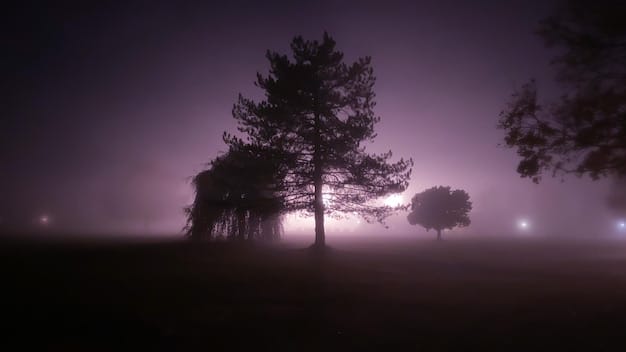
The Cultural Impact and Enduring Relevance
Speculative fiction isn’t merely entertainment; it is a profound cultural force that has consistently influenced our collective imagination, scientific progress, and philosophical discourse. From influencing real-world technological advancements to shaping our ethical considerations regarding artificial intelligence or genetic engineering, the genre serves as an intellectual sandbox where humanity can play out its hopes and fears for the future. Its enduring relevance lies in its unique ability to reflect societal anxieties, explore complex moral dilemmas, and even inspire tangible innovations, making it far more than just a diversion.
Reflecting and Shaping Our World
The narratives within speculative fiction often act as a barometer for cultural shifts and a catalyst for new ways of thinking. Its impact extends far beyond the printed page or the silver screen.
- It provides a safe space to explore controversial social or political ideas without directly advocating for them in our current reality. By setting stories in a distant future or an alternate world, authors can critique our present with greater freedom and impact.
- It inspires scientific and technological innovation. Many scientific concepts or inventions, from submarines to mobile phones, were first envisioned within the pages of science fiction before becoming a reality. The genre sparks curiosity and pushes the boundaries of what is considered possible.
- It shapes discourse on ethics and philosophy. Speculative fiction often deals with profound questions about consciousness, free will, the definition of humanity, and the responsibility that comes with power and knowledge. These discussions resonate deeply within academic and public spheres.
- It fosters empathy and understanding. By immersing readers in diverse worlds and perspectives, it can broaden their capacity for empathy towards different cultures, species, or ways of life, challenging preconceived notions.
The expansive reach of speculative fiction ensures its continued significance as a genre that not only entertains but also enlightens, critiques, and ultimately helps us understand ourselves and our place in the universe. It remains an essential tool for imagining, for questioning, and for preparing for the futures that may or may not come to pass. Its enduring appeal lies in its capacity to resonate with universal human experiences, regardless of how fantastical its settings might be.
| Key Point | Brief Description |
|---|---|
| 🔬 Science Fiction | Explores tech’s impact on society; ranges from cyberpunk to space opera. |
| 🧙 Fantasy | Features magic and mythical creatures; spans high fantasy to urban settings. |
| 👻 Horror | Confronts fears: supernatural, psychological, and cosmic terrors. |
| 🔄 Hybrid Genres | Blends elements, fostering innovation (e.g., science fantasy, alternative history). |
Frequently Asked Questions About Speculative Fiction
Science fiction typically grounds its fantastical elements in scientific principles or technological advancements, even if speculative. Fantasy, in contrast, relies on magic, mythical creatures, and supernatural phenomena as its core elements, often set in worlds entirely separate from our own reality.
Yes, dystopian novels are a prominent subgenre of speculative fiction. They present societies characterized by oppressive or undesirable conditions, often as a result of technological abuses, political extremism, or environmental catastrophe, serving as cautionary tales about potential societal futures.
Slipstream fiction blurs the lines between genre fiction and literary fiction, incorporating elements of the surreal, dreamlike, or fantastic into narratives that are otherwise realistic. It focuses on disrupting reader expectations and challenging perceptions of reality, often exploring philosophical or emotional themes.
Speculative fiction offers a safe space to explore complex societal issues, ethical dilemmas, and human nature through allegories and hypothetical scenarios. It can critique current trends, inspire critical thinking about the future, and even influence scientific innovation by imagining possibilities that later become reality.
Absolutely. While focused on fear, horror often incorporates speculative elements like supernatural entities, alternate realities, or extreme scientific experiments that distinguish it from realistic fiction. Its exploration of the unknown and the impossible firmly places it within the broader speculative fiction umbrella.
Conclusion
Speculative fiction, an expansive and ever-evolving territory, remains a dynamic testament to human imagination. From the scientifically grounded explorations of science fiction to the magical realms of fantasy, the chilling depths of horror, and the reality-bending narratives of alternative history and slipstream, this genre consistently pushes the boundaries of storytelling. It not only offers unparalleled escapism but also serves as a crucial lens through which to examine our present, anticipate our future, and understand the multifaceted nature of human existence. Its ability to adapt, hybridize, and provoke thought ensures its enduring relevance and its boundless potential for continued innovation.
